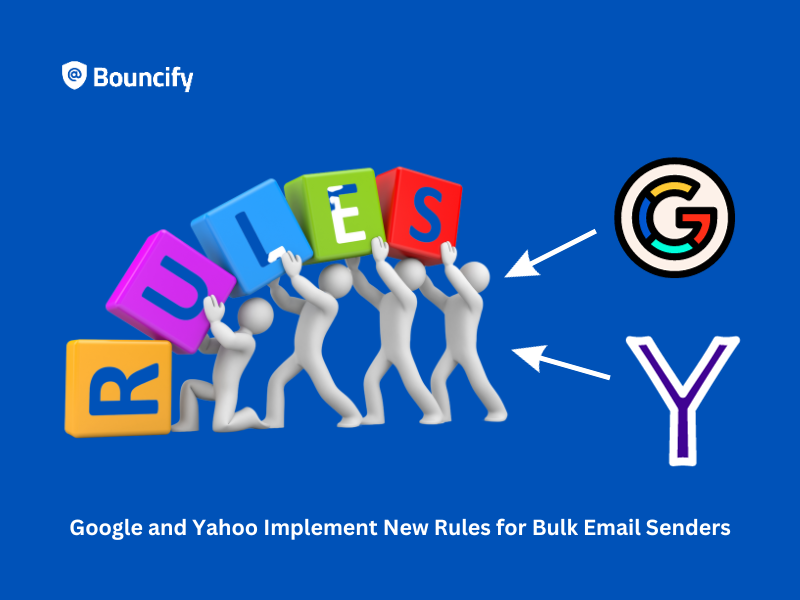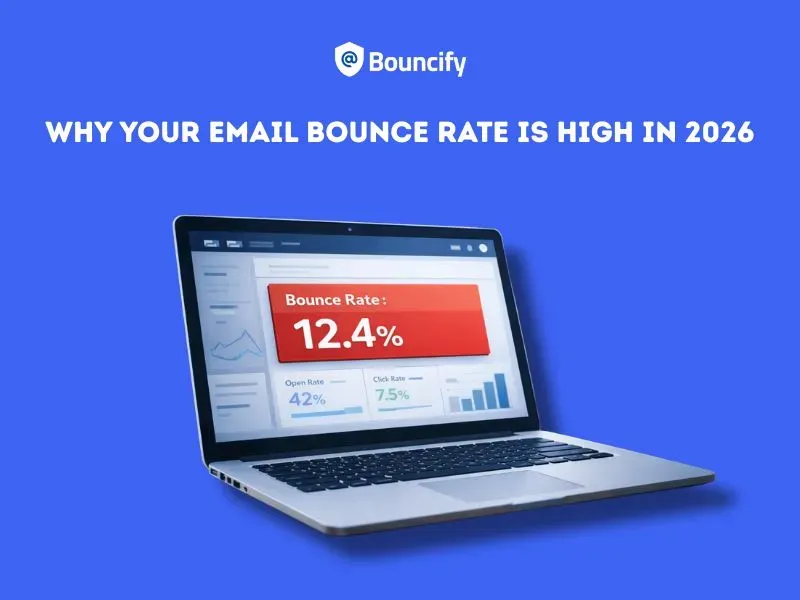Google and Yahoo Implement New Rules for Bulk Email Senders
Google and Yahoo have announced new stricter rules for bulk email senders to combat spam and improve email deliverability. Starting in February 2024, the two major email providers will enforce new requirements for bulk senders, which include
1.Email Authentication
Bulk email senders must adopt authentication systems, including Sender Policy Framework (SPF), DomainKeys Identified Mail (DKIM), and **Mailman's Domain Name System **(DMARC). These systems help prove that a sender is who they claim to be and reduce the chances of domain spoofing.
2. Spam Rate Thresholds
Both companies will set up and enforce clear spam rate thresholds that senders cannot exceed. Email senders with a reported spam rate over 0.3% will face "increased spam classification.
3. Unsubscribe Function
Bulk email senders must include an easy and visibleunsubscribe link in their emails, allowing recipients to opt out of receiving further emails from a particular sender.
These new rules aim to protect people from unwanted emails and improve the overall email experience. Google's AI-powered safeguards already filter out 99.9% of spam and phishing messages, but the companies recognize the need for additional measures to combat the growing complexity of email threats.
Yahoo has also announced similar restrictions, which will begin in the first quarter of 2024. By implementing these new guidelines, Google and Yahoo aim to raise the bar for email hygiene and reduce the amount of spam and phishing emails that reach users' inboxes. Bulk email senders must adapt to these new requirements to ensure their emails are delivered and not marked as spam.
Google's Initiatives: BIMI and DMARC
Google, with its widely utilized Gmail platform, has implemented measures to bolster email authentication and counter phishing attacks. A notable initiative is BIMI (Brand Indicators for Message Identification), enabling brands to showcase their logos alongside authenticated emails in the Gmail interface. Furthermore, Google underscores the significance of DMARC (Domain-based Message Authentication, Reporting, and Conformance) to thwart email spoofing.
Yahoo's Policy Updates
Yahoo, another prominent player in the email service provider domain, has introduced policy updates to combat spam and heighten user security. The emphasis is on tightening DMARC policies to ensure that only authorized senders can use Yahoo domains, minimizing the risk of phishing attempts.
Adapting to the New Norms for Bulk Email Senders
1. Authentication is Imperative
Implement robust email authentication protocols like SPF (Sender Policy Framework), DKIM (DomainKeys Identified Mail), and DMARC. These protocols serve to verify the legitimacy of your emails and enhance overall deliverability.
2. BIMI Adoption for Brand Trust
Consider integrating BIMI to display your brand's logo alongside authenticated emails. This not only boosts brand visibility but also provides assurance to recipients regarding the authenticity of your communications.
3. Stricter DMARC Compliance
Strengthen your DMARC policies to mitigate email spoofing risks. A heightened level of DMARC alignment fosters trust with email service providers and diminishes the likelihood of your emails being flagged as spam.
4. Maintain Clean and Engaged Email Lists
Regularly cleanse your email lists by removing inactive and invalid addresses. Consistent engagement with your audience helps uphold a positive sender reputation, consequently enhancing deliverability.
5. Prioritize Consent and Transparency
Ensure explicit consent from recipients before sending emails. Clearly communicate the purpose of your emails and provide easily accessible unsubscribe options to comply with regulations and build trust.
Conclusion
In the face of Google and Yahoo's stringent measures against spam, bulk email senders must proactively adapt to the evolving email landscape. By prioritizing authentication, compliance, and user trust, businesses can navigate the new rules successfully and maintain effective communication with their audiences.
As businesses strive to comply with the new norms, integrating an email verification service like Bouncify can be a game-changer. Bouncify's capabilities in reducing hard bounce and spam rates make it a valuable ally for bulk email senders. By continuously cleansing email lists and ensuring only valid, engaged recipients receive communications, Bouncify significantly contributes to maintaining a positive sender reputation.
Remember, success in the ever-changing world of bulk email sending requires staying informed, implementing best practices, and fostering a culture of responsible email marketing. As you navigate these new rules, leverage the power of Bouncify to enhance your sender reputation, optimize deliverability, and build lasting trust with your audience. Stay informed, adapt proactively, and thrive in the evolving landscape of bulk email sending.


